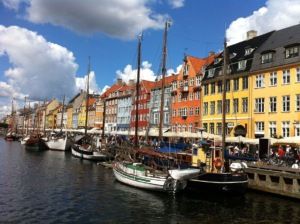News
Copenhagen named world’s most sustainable city
This article is more than 3 years old.
The Danish capital shone for its track record of slashing carbon emissions and converting wind and waste into green energy

Need a work and residence permit? Update yourself on the new standards (photo: pxfuel.com)
Online education platform GetSmarter has pegged Copenhagen as the world’s most sustainable city in a new report on green lifestyles entitled ‘Sustainability: The Meaning, Changing Perceptions, and Expanding Agendas’.
A sustainable city is defined as “one that’s able to retain the supply of natural resources while achieving economic, physical and social progress, while remaining safe against environmental risks”.
Many factors are in play here: affordable housing, green transport, energy and waste production, digitisation and more.
City-dwellers drive green demand
The 20 top cities were selected from 65 participating countries – all of which had a high density of so-called “green professionals”, who help to drive demand for sustainable standards.
In Germany, for example, 75 percent of people say an organisation’s commitment to sustainability impacts their decision to purchase their products or services. In the UK, that figure is 90 percent.
Copenhagen lays waste to competitors
Denmark was the highest-rated country on the Environmental Performance Index (EPI) in 2020. Since 1995, Copenhagen’s carbon emissions have dropped by 50 percent and it’s on track to become the first major carbon-neutral city by 2025.
Such an exemplary carbon track record, combined with continued efforts in green energy and waste conversion, draws sustainability-conscious professionals and businesses.
In particular, GetSmarter praised the “innovative” Amager Bakke clean-burning incinerator, which converts 534,600 tonnes of municipal waste a year into energy – enough to electrify 30,000 homes and heat 72,000. Less than 2 percent of Copenhagen’s waste goes to a landfill.
See which other cities made the top 20 below, and read up on why here.
- Copenhagen
- Frankfurt
- San Francisco
- Reykjavík
- Singapore
- Amsterdam
- Canberra
- Stockholm
- London
- Vancouver
- Vienna
- Berlin
- Zurich
- Grenoble
- Portland
- Ljubljana
- Oslo
- Lisbon
- Montevideo
- Masdar City










































